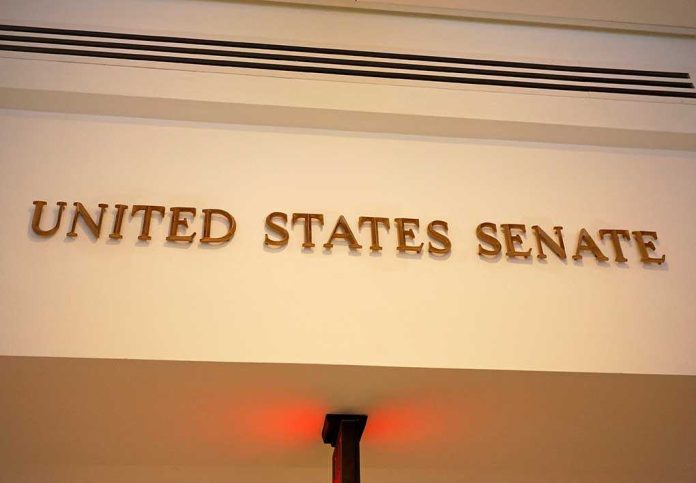
A sitting senator who once wore the crown of West Virginia’s richest man now faces a reckoning, forced to pay back millions in overdue taxes clawed back by the IRS, raising urgent questions about power, privilege, and public trust.
Story Snapshot
- Senator Jim Justice and his wife settle with the IRS for over $5 million in back taxes dating to 2009.
- The legal battle exposes a 15-year saga of unpaid debts, lucrative coal deals, and failed financial stewardship.
- The case highlights the persistent tension between political authority and legal accountability.
- Justice’s financial woes mirror broader instability in the coal industry and challenge public trust in government.
IRS Lawsuit Unveils Long-Standing Tax Debts of a Political Powerhouse
Jim Justice, now a Republican senator representing West Virginia, has lived two lives: coal magnate and public official. His rise was meteoric, marked by vast profits from coal mine sales in 2009. Yet, beneath the veneer of success, debts mounted. The Department of Justice filed a lawsuit on November 24, 2025, demanding $5,164,739.75 in unpaid federal income taxes. This followed an IRS lien in October for over $8 million, punctuating a decade and a half of ignored tax bills and regulatory fines. For a man with immense business interests, the IRS’s patience finally ran out.
Justice’s tax troubles didn’t erupt overnight. Reports as far back as 2016 detailed unpaid bills to coal suppliers and regulators, suggesting a pattern of financial neglect. The IRS and DOJ’s recent actions aren’t isolated; they echo a history of legal disputes involving Justice’s businesses, including the iconic Greenbrier Hotel, which itself faced a $1.36 million lien. The senator’s removal from the Forbes billionaire list in 2021 signaled that liabilities had overtaken assets—a stunning reversal for a figure who once symbolized Appalachian prosperity.
Political Power, Legal Accountability, and the Price of Privilege
The settlement agreement is more than a personal financial concession; it’s a litmus test for the durability of American legal norms. Justice wielded considerable influence as governor and now as senator, switching party allegiances from Democrat to Republican. Despite this power, federal authorities pressed forward, demonstrating that even political heavyweights cannot indefinitely evade the taxman. The $5 million payment, pending judicial approval, stands as a public lesson in the reach of federal enforcement—especially at a time when public trust in government is fragile.
Justice’s office and attorneys have declined to comment on the settlement, a silence that speaks volumes. Previously, he characterized the IRS’s actions as politically motivated, echoing a familiar refrain in partisan disputes. Yet the facts remain: the IRS and DOJ followed due process, and the courts now hold the key to final resolution. This episode is watched closely by West Virginia constituents and the broader political community, with many questioning the integrity and financial stewardship of their elected representative.
Impact on Justice, West Virginia, and Broader Governance
The immediate impact is clear: Justice and his wife must pay over $5 million, a blow to their personal finances. The reputational consequences, however, may be more enduring. West Virginia voters—many of whom have faced economic hardship amid coal’s decline—now see their senator’s financial missteps cast in the national spotlight. As Justice faces ongoing liens and legal scrutiny, the story underscores a larger issue: public officials must uphold the same standards of accountability as those they represent.
GOP Senator Sued By IRS Agrees To Pay Back $5,000,000 In Taxes https://t.co/ENRBc0Kuo6
— Off The Press (@OffThePress1) November 25, 2025
This case also ripples beyond individual consequence. The IRS’s assertive pursuit of back taxes, even against a senator, reinforces the principle that no one is above the law. For the coal industry, Justice’s fall from billionaire status to embattled debtor mirrors its own economic challenges. Politically, the affair may prompt increased scrutiny of candidates’ financial disclosures and tax compliance, especially among those seeking fiscal policy influence or committee assignments. The settlement could thus shape legislative priorities and public expectations for years.
Expert Perspectives on Legal, Financial, and Ethical Lessons
Financial analysts point to Justice’s predicament as a cautionary tale for public officials whose private fortunes and public duties intersect. Navigating complex personal and corporate finances while in office presents inherent risks—especially when transparency lapses. Political commentators argue that failure to address such issues openly erodes public trust, and that visible enforcement is necessary to restore faith in government.
Academic experts highlight the ethical imperatives at play. Elected representatives must model financial responsibility, not only to comply with the law but to preserve the legitimacy of democratic institutions. The Justice case may find its way into future studies on administrative ethics, serving as a stark reminder of the consequences when power and privilege collide with legal obligation.




